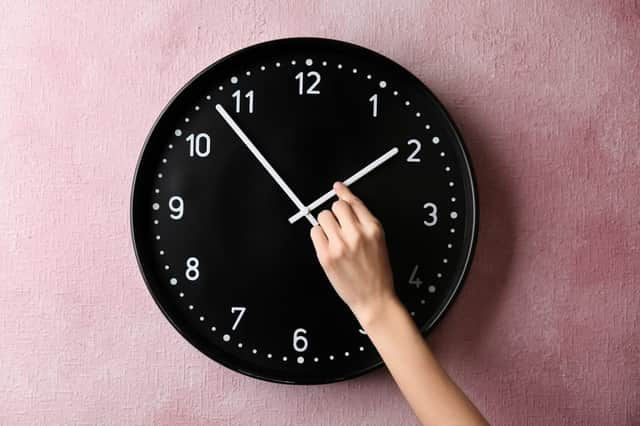Here’s when to turn your clocks back in 2020 - and why we do it


Twice a year, households across the UK change the time on their clocks either an hour forward or an hour backwards, depending on the time of year - and each year, many of us get confused about when the clocks change.
This is when you should set your clocks back an hour this year, as well as the history behind why we even do it in the first place.
When do the clocks change?
Advertisement
Hide AdAdvertisement
Hide AdIn 2020, the clocks were put forward on 29 March. We will then put them back on 25 October.
Once the clocks have been put back, they will remain that way until next year, when they will be put forward again, on 28 March 2021.
In the UK, the clocks go forward an hour at 1am on the last Sunday in March, and then back an hour at 2am on the last Sunday in October.
When the clocks are an hour ahead, the time zone is referred to as British Summer Time (BST). There is more daylight in the evening during this time, and less daylight in the mornings. When the clocks go back, the UK is then on Greenwich Mean Time (GMT).
Why do we change the clocks twice a year?
Advertisement
Hide AdAdvertisement
Hide AdBritish Summer Time (BST), also known as Daylight Saving Time, was initially designed to help people maximise their sunlight hours all throughout the year.
It was created following a campaign by British builder, William Willett, in 1907, with the Summer Time Act of 1916. Willett wrote about his proposal in a pamphlet called The Waste of Daylight, which was published in 1907.
Willett (who is actually Coldplay frontman Chris Martin’s great-great-grandfather), proposed the idea to keep days longer in the summer so he could play golf for longer.
In the pamphlet, Willett wrote, “Nevertheless, standard time remains so fixed, that for nearly half the year the sun shines upon the land for several hours each day while we are asleep, and is rapidly nearing the horizon, having already passed its western limit, when we reach home after the work of the day is over.
Advertisement
Hide AdAdvertisement
Hide Ad“Under the most favourable circumstances, there then remains only a brief spell of declining daylight in which to spend the short period of leisure at our disposal.”
The new system was also thought to benefit more than just keen golfers, but also that making the most of natural sunlight would conserve energy, which was essential during World War I when coal was limited.
After much lobbying, Willett's idea was eventually introduced to the UK a year after his death, and just after Germany and Austria also introduced the daylight saving system.
Why is it controversial?
While some may think it’s a good idea to make the most out of our daylight, many believe that the system isn’t that beneficial and that it actually causes major problems - especially around Europe where there are three time zones.
Advertisement
Hide AdAdvertisement
Hide AdLike the UK, countries in mainland Europe also change their clocks in summer and winter.
The problem largely lies with the difference in sunlight around the continent, as northern countries get much less sunlight than southern countries, so the clock changes have a more severe effect on some places than others.
A survey conducted last year by the European Commission found that 84 per cent of 4.6 million respondents said they wanted to scrap Daylight Saving Time.